New European race to begin 10-year plan
Published on October 12th, 2020
With the postponement of The Ocean Race (formerly Volvo Ocean Race) from 2021 to 2022 comes the inaugural edition of The Ocean Race Europe, scheduled to start late in the spring of 2021, which will bring international top-flight, competitive ocean racing to up to five European cities.
The Ocean Race Europe will see crew members from all over the world racing in foiling IMOCA 60s and one-design VO65s racing from the North Atlantic coast of Europe into the Mediterranean Sea, on a race course of up to five legs, each to be scored equally, with winners and prizes in each class.
“The Ocean Race Europe, provisionally scheduled to run over the month of June, fits well in the racing calendar in 2021 and provides our teams with competitive, meaningful racing next year, adding continuity to their racing programmes,” said Johan Salén, the Managing Director of The Ocean Race.
“As a new event, it has been important that we have support from teams and sailors for this project to get off the ground, and the feedback to date has been extremely positive.”
“The Ocean Race Europe is a good new event for the IMOCA fleet as it will allow us to start the summer with a race around Europe, fully crewed, in both ocean and Mediterranean conditions,” said Jérémie Beyou, skipper of the IMOCA 60 Charal. “The racing, with relatively short legs, should be close and very competitive, while on shore it will allow us to engage with more sailing fans around Europe, so for us it is an interesting project.”
Bouwe Bekking, an eight-time veteran of The Ocean Race, has been racing with Sailing Holland and Team Childhood over the past year and has also been coaching the Sailing Poland VO65 team recently. “It will be very interesting to see how the new teams will perform and as well how the VO65 boats can hang with the IMOCA 60s.
“In fast reaching conditions, I’m sure there will be big differences and the foiling IMOCAs will smoke the 65s. But if we get some upwind or dead downwind running conditions, maybe there is a surprise or two! Either way, it looks to be an exciting few weeks of racing and I’m looking forward to it.”
On shore, there will be public activities within each host city, along with team promotional and hospitality events. The Ocean Race Europe will put the health of the sailors, teams and public as a top priority and respect all COVID-19 regulations in each city visited.
The work started by the award-winning sustainability program of the 2017-18 Race continues as part of The Ocean Race Europe and beyond. The Racing with Purpose program includes advocacy, science, learning, and sustainable event excellence.
Ocean health and climate change are inextricably linked. The Ocean Race Europe will be advocating for climate action, telling the story of climate change through a blue lens.
As part of the UNFCCC’s Sports for Climate Action framework, The Ocean Race joins forces with the sports sector in our global race towards net zero emissions by 2030.
And the plan for The Ocean Race is not to just reach net zero emissions, but be truly restorative and be climate positive.
“As sailors, we instinctively know that protecting and restoring a resource as central to life as the ocean is essential to our collective future,” said Richard Brisius, Race Chairman of The Ocean Race. “With our sailors, teams, cities and stakeholders, we will continue our efforts to promote a healthy and abundant ocean, and The Ocean Race Europe fits into this strategy.
“This event has been inspired by and will demonstrate, the values and spirit of European cooperation and identity. The Ocean Race Europe, passing through several member countries, will in itself be a showcase of open borders, the European Green Deal and the power of digital transformation, as well as the European mindset of working positively and proactively across national borders to address common challenges.”
The inaugural edition of The Ocean Race Europe in 2021 leads off a ten-year calendar of racing activity that includes confirmed editions of the iconic, fully-crewed, around the world event – The Ocean Race – every four years, beginning in 2022-23.
Looking forward to The Ocean Race, an amendment to the Notice of Race will be issued that includes a change to the crew configuration for the IMOCA 60s, which reduces the number of crew on board by one, to four crew members (with at least one female) or five crew members (with at least four females). In both scenarios, each team must additionally have a dedicated On Board Reporter.
This comes as a positive response to a request from the IMOCA Class Association, and follows consultation with their membership.
“The goal is to make it easier for existing boats and sailors, who are already active in the IMOCA fleet, to compete in The Ocean Race,” said Antoine Mermod, President of the IMOCA Class Association. “A common feedback was to reduce the number of crew and we are pleased to see this change.”
More updates on The Ocean Race Europe, including a potential prologue event in northern Europe, will be confirmed as arrangements with Host Cities are finalized.
Event details – Route – Teams – Facebook
Here was the plan prior to the 2022-23 postponement:
The Ocean Race 2021-22 (formerly Volvo Ocean Race) will be raced in two classes of boats: the high-performance, foiling, IMOCA 60 class and the one-design VO65 class which has been used for the last two editions of the race. Entries in the IMOCA 60 class will compete for The Ocean Race trophy, while those racing the VO65s will chase the Ocean Challenge Trophy.
Ten Stopovers for 14th Edition:
• Alicante, Spain: This historic Mediterranean port will host the start for the fifth consecutive edition in the autumn of 2021.
• Cabo Verde: More accustomed to having offshore teams sail by, or stop for repair, this archipelago of ten volcanic islands in the central Atlantic Ocean will become just the second African venue the race has ever visited and the first West African nation to host the event. Details.
• Cape Town, South Africa: Located on the shore of Table Bay, Cape Town, as the oldest urban area in South Africa, was developed by the United East India Company (VOC) as a supply station for Dutch ships sailing to East Africa, India, and the Far East. Located at latitude 33.55° S, it’s approximately the same as Sydney and Buenos Aires and equivalent to Casablanca and Los Angeles in the northern hemisphere. Details.
• Shenzhen, China: Located in the southeast, the city is a modern metropolis that links Hong Kong to China’s mainland. It’s known for its shopping destinations and features contemporary buildings, such as the 600m-tall skyscraper Ping An International Finance Centre, and a number of amusement parks. The city is a leading global technology hub and was one of the fastest-growing cities in the world in the 1990s and the 2000s. Details.
• Auckland, New Zealand: European, Polynesian, Asian, and strong Maori heritages give Auckland its distinctive culture. Located in the North Island of New Zealand, it is the most populous urban area in the country with an urban population of around 1,570,100. Details.
• Itajaí, Brazil: To the south of Rio de Janeiro, Itajaí was founded in the mid-19th century by German and Italian colonists, and is now the commercial centre and Atlantic port for an agricultural region drained by the Itajaí River and its tributaries. Details.
• Newport, USA: Located on Aquidneck Island, Newport is 74 miles south of Boston and 180 miles northeast of New York City. It is known as a New England summer resort and is famous for its historic mansions and its rich sailing history. It was the location of every challenge to the America’s Cup between 1930 and 1983. It is also the home of Naval Station Newport, which houses the United States Naval War College, the Naval Undersea Warfare Center, and an important Navy training center. This is the third consecutive edition of the race to stop in Newport. Details.
• Aarhus, Denmark: The course comes to the east coast of the Jutland peninsula during the spring of 2022, following a popular ‘Fly-By’ of the city during the final leg of the 2017-18 edition of the Race. Details.
• The Hague, Netherlands: This city along the North Sea coast will welcome the race for a third consecutive time, first coming as a ‘pitstop’ on the final leg of the 2014-15 edition and as the final finish port for the 2017-18 race. Details.
• Genoa, Italy: As the birthplace of Christopher Columbus, this first-time race host is Italy’s largest sea port yet remains full of grandeur as the gateway to the Riviera while offering weighty architectural heritage. Details.


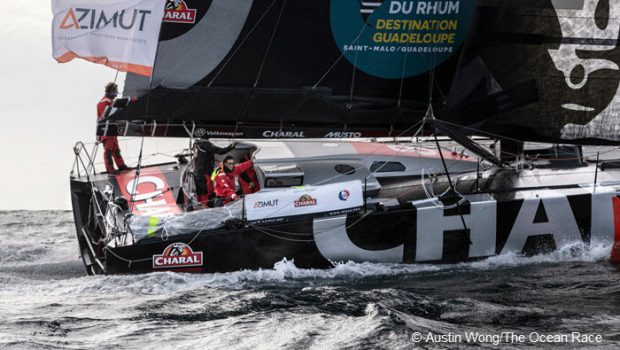

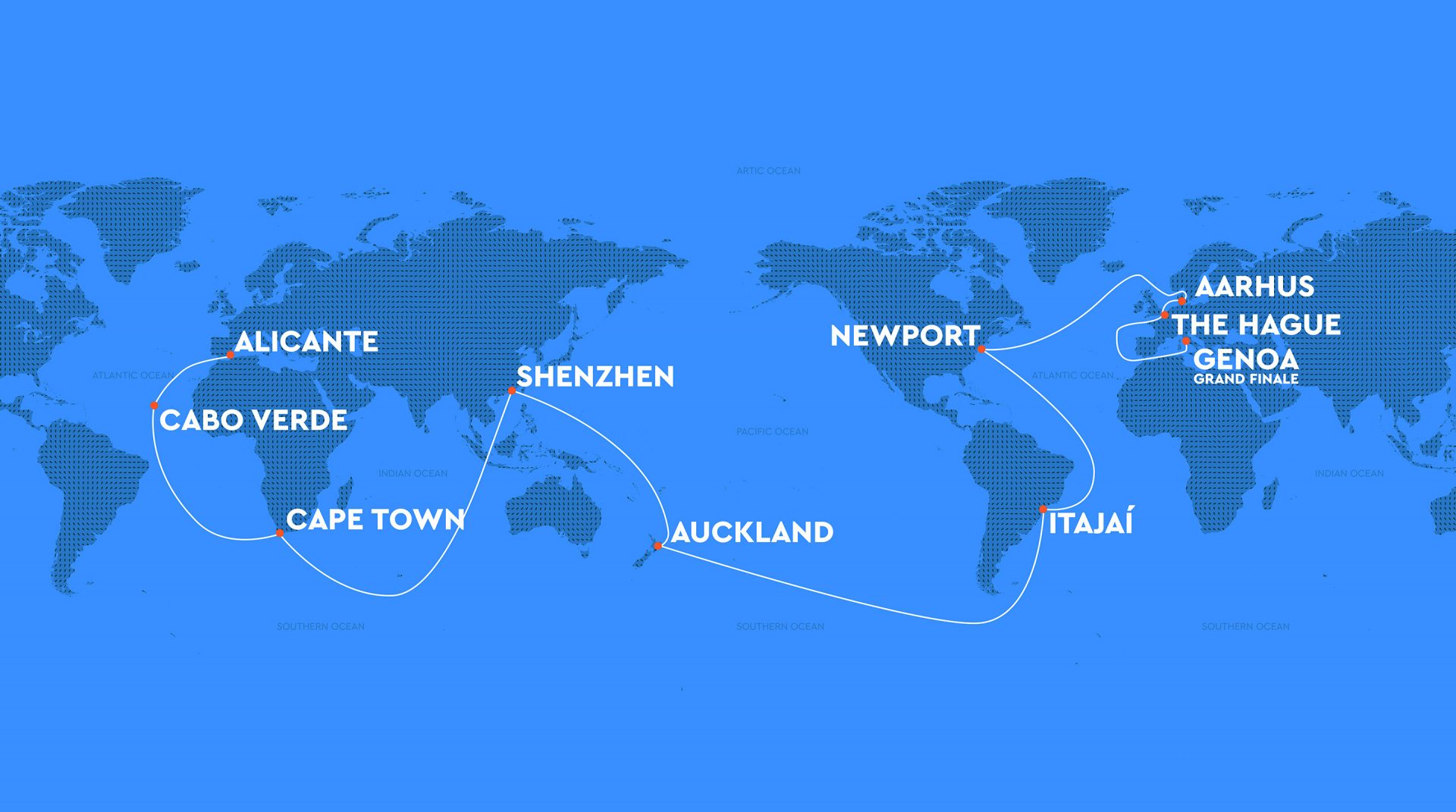

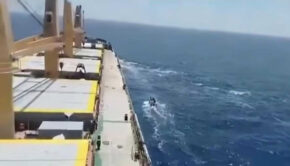
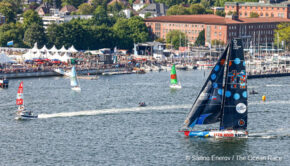
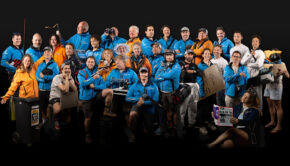
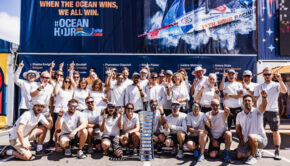
 We’ll keep your information safe.
We’ll keep your information safe.